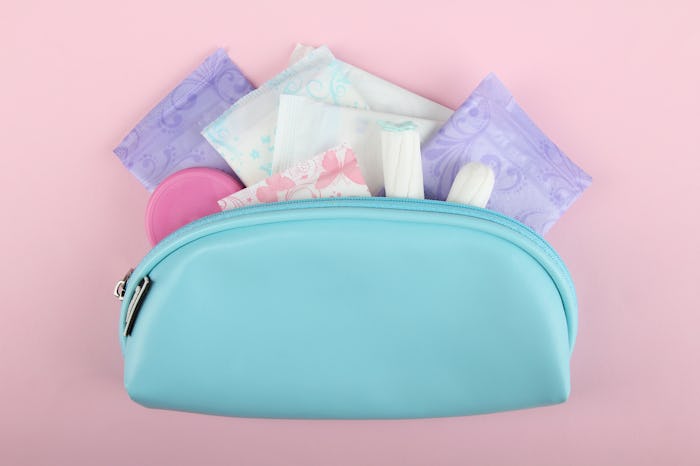Life

How To Know If Your Feminine Wipes Are Safe
Feminine hygiene can be a bit of a touchy subject. You want to take care of yourself and keep all of your lady parts happy and healthy, but there are so many products for so many things (and often so much conflicting information), it can be difficult to know what a solid feminine hygiene routine should look like and what's unnecessary or even potentially harmful. Feminine washes have a mixed reputation and some women love them, while some would never consider using them, but what about feminine wipes? Are feminine wipes safe for vaginal health?
Some women view the use of so-called feminine care products like washes, douches, wipes, and sprays as essential components of practicing good feminine hygiene. However, Dr. Michele G. Curtis, a gynecologist at a private practice, told Shape that using products touting feminine care benefits may not actually be as beneficial as you'd think. While many of these products are designed (and marketed) to help balance and stabilize the pH of your vagina, according to Women's Health, some of these products themselves don't even have a balanced pH and therefore can make an upset vagina worse, which no woman wants.
Douching, for example, as Elizabeth Boskey, Ph.D., told Shape in the aforementioned article, is generally not advised unless your healthcare provider specifically prescribes it. You should also know that the Food and Drug Administration (FDA) does not require products like feminine wipes to be tested before hitting the market. Deborah Kotz, press officer for the FDA, told Health that feminine wipes (and some other feminine hygiene products) are considered low-risk, which is why they don't need to be tested prior to being distributed and sold.
Feminine wipes don't have to be bad or potentially dangerous, however. If you choose the right ones, they can be safe for vaginal health. According to Teen Vogue, some wipes are specially-formulated with the correct pH, which will limit pH disruptions in your vagina. Additionally, wipes that are unmedicated, glycerin-free, alcohol-free, and fragrance-free should be a safe choice, as Boskey told Shape in the previously mentioned article. Fragrances, glycerin, and alcohol can all dry out the sensitive skin in and around the vagina and should be avoided. If the wipes you use do irritate your skin or upset your vagina, stop using them right away. There's no need to deal with pain or skin irritation.
Generally, your vagina is perfectly capable of cleaning itself, so there shouldn't be a regular need for using wipes, washes, or any other products. Dr. Jennifer Gunter, a San Francisco Bay Area-based OB-GYN, told BuzzFeed Life that water is all you truly need in order to clean your vulva (which is the external genitalia, while the vagina is internal). If you're going to use feminine wipes, it's best to choose the option that has minimal ingredients. Stash some in your purse or under the sink in your bathroom and rest easy knowing that you can take care of any issues that may come up or just feel a little bit fresher, while still doing what's best for your vaginal health.